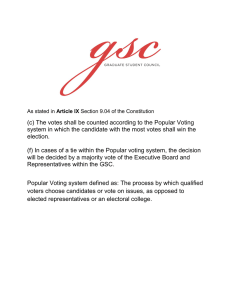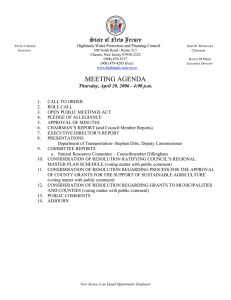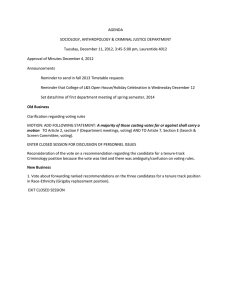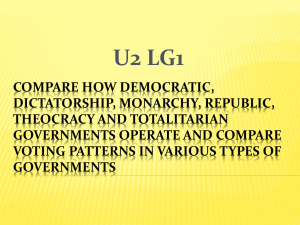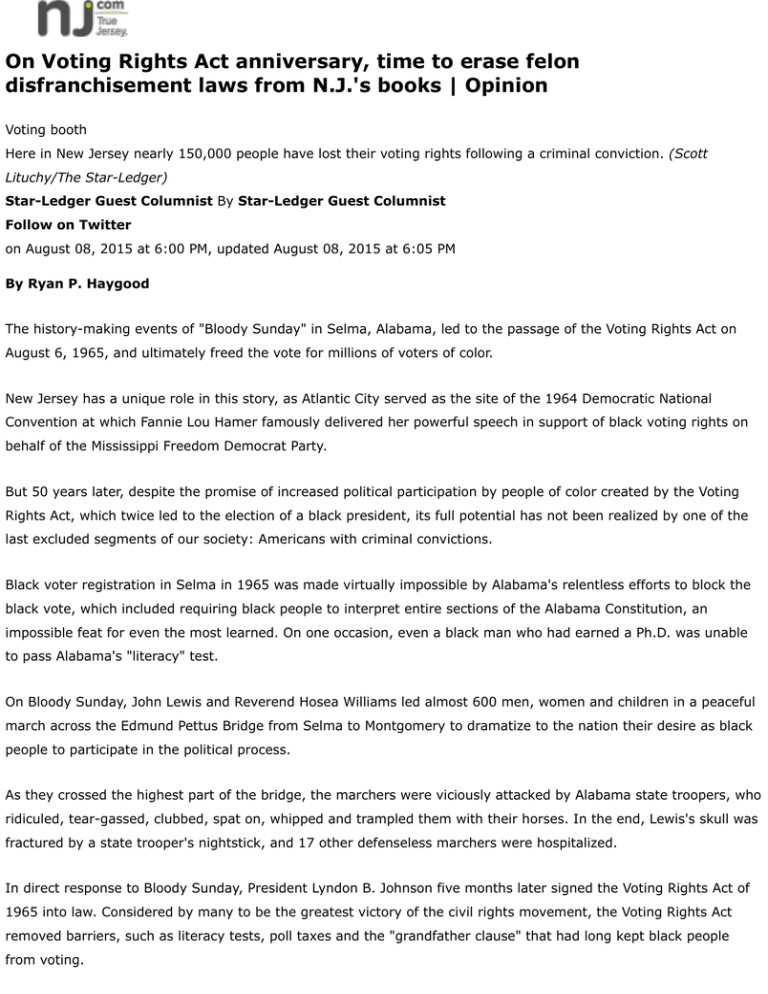
On Voting Rights Act anniversary, time to erase felon
disfranchisement laws from N.J.'s books | Opinion
Voting booth
Here in New Jersey nearly 150,000 people have lost their voting rights following a criminal conviction. (Scott
Lituchy/The Star-Ledger)
Star-Ledger Guest Columnist By Star-Ledger Guest Columnist
Follow on Twitter
on August 08, 2015 at 6:00 PM, updated August 08, 2015 at 6:05 PM
By Ryan P. Haygood
The history-making events of "Bloody Sunday" in Selma, Alabama, led to the passage of the Voting Rights Act on
August 6, 1965, and ultimately freed the vote for millions of voters of color.
New Jersey has a unique role in this story, as Atlantic City served as the site of the 1964 Democratic National
Convention at which Fannie Lou Hamer famously delivered her powerful speech in support of black voting rights on
behalf of the Mississippi Freedom Democrat Party.
But 50 years later, despite the promise of increased political participation by people of color created by the Voting
Rights Act, which twice led to the election of a black president, its full potential has not been realized by one of the
last excluded segments of our society: Americans with criminal convictions.
Black voter registration in Selma in 1965 was made virtually impossible by Alabama's relentless efforts to block the
black vote, which included requiring black people to interpret entire sections of the Alabama Constitution, an
impossible feat for even the most learned. On one occasion, even a black man who had earned a Ph.D. was unable
to pass Alabama's "literacy" test.
On Bloody Sunday, John Lewis and Reverend Hosea Williams led almost 600 men, women and children in a peaceful
march across the Edmund Pettus Bridge from Selma to Montgomery to dramatize to the nation their desire as black
people to participate in the political process.
As they crossed the highest part of the bridge, the marchers were viciously attacked by Alabama state troopers, who
ridiculed, tear-gassed, clubbed, spat on, whipped and trampled them with their horses. In the end, Lewis's skull was
fractured by a state trooper's nightstick, and 17 other defenseless marchers were hospitalized.
In direct response to Bloody Sunday, President Lyndon B. Johnson five months later signed the Voting Rights Act of
1965 into law. Considered by many to be the greatest victory of the civil rights movement, the Voting Rights Act
removed barriers, such as literacy tests, poll taxes and the "grandfather clause" that had long kept black people
from voting.
Today, nearly 6 million Americans, including two million black people, are locked out of the political process by state
laws that disqualify people with criminal convictions from voting.
Here in New Jersey nearly 150,000 people have lost their voting rights following a criminal conviction. And though
black people comprise just 14 percent of New Jersey's overall population, they represent, incredibly, more than half
of those (approximately 70,000) who have lost their voting rights as a result of a criminal conviction.
The historical record reveals that to prevent newly freed black people from voting after the Civil War, many state
legislatures in the North and South tailored their felon disfranchisement laws to require the loss of voting rights only
for those offenses committed mostly by black people.
For example, the 1890 Mississippi constitutional convention required disfranchisement for such crimes as theft,
burglary and receiving money under false pretenses, but not for robbery or murder. These intentionally
discriminatory laws were guided by the belief that black people engaged in crime were more likely to commit furtive
offenses than the more robust crimes committed by whites. Through the convoluted "reasoning" of this provision,
one would be disfranchised for stealing a chicken but not for killing the chicken's owner.
Many other states, from New York to Alabama, have also intentionally and effectively utilized felon disfranchisement
laws to prevent black people and other voters of color from voting.
New Jersey's law disqualifies people from voting when they are in prison, on probation and on parole. Suffrage for
people with criminal convictions was initially restricted in 1844 when New Jersey adopted a new constitution, the
same year that it, for the first time, explicitly restricted the vote to white men over twenty-one.
As intended, modern day felon disfranchisement laws disproportionately weaken the voting strength of communities
of color. New Jersey's felon disfranchisement law is most destructive in these communities, which are affected
disproportionately by numerous socioeconomic ills, including concentrated poverty, and unequal access to quality
education, housing and health care.
The further disfranchisement of people of color results largely from the disproportionate enforcement of drug laws in
black and Latino communities, which has expanded exponentially the number of people of color subjected to felon
disfranchisement. And to add insult to injury, though they cannot vote, people with criminal convictions are counted
by the U.S. Census as residents of the often rural communities where prisons are housed for purposes of drawing
legislative districts, rather than as residents of often urban communities from which they actually come and will
return.
As a result, New Jersey residents in black and Latino communities have even less of an opportunity to affect positive
change through the political process.
Moreover, these laws also discourage eligible and future voters from exercising the learned behavior of voting. In
doing so, these laws create a culture of political nonparticipation that erodes civic engagement and marginalizes the
votes and voices of community members who remain engaged, but who are deprived of the collective power of the
votes of disfranchised relatives and neighbors.
Although common in the United States, felon disfranchisement statutes are not a necessary feature of our
participatory democracy. Indeed, Maine, Vermont and most western democracies have no such statutes and permit
all people with felony convictions – including those both currently incarcerated and formerly incarcerated – to vote.
Some states restore voting rights to formerly incarcerated persons once they have served their entire prison
sentence. But too many formerly incarcerated persons are not informed that their voting rights have been restored,
and although technically free to vote, remain voteless.
Most unfortunately, New Jersey law deprives people with criminal convictions of the right to vote even as studies
convincingly show that voting is an important reintegration tool that helps to facilitate re-entry into society and
reduce recidivism.
Regrettably, 50 years after 600 people risked their lives on Bloody Sunday to expand democracy for people of color,
and in the 50th anniversary year of the passage of the Voting Rights Act of 1965, too many voters of color here in
New Jersey, rather than experiencing increased political participation, are losing their voting rights daily.
It is time to erase felon disfranchisement laws from New Jersey's books. The integrity and legitimacy of our
democracy, and the fulfillment of the promise of the Voting Rights Act and the human sacrifice that led to its
passage, depends on it.
Ryan P. Haygood is CEO and president of the New Jersey Institute for Social Justice, a leading social justice legal
organization on behalf New Jersey's urban communities. He lives in Newark's South Ward, and formerly served as
deputy director of litigation of the NAACP Legal Defense and Educational Fund Inc.
Follow The Star-Ledger on Twitter @StarLedger and find us on Facebook.
© 2015 NJ.com. All rights reserved.

